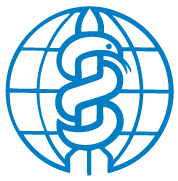Violent Injury Research
See violent injury research summaries by country here.
See the multinational injury research here.
Violence occurs in a complex interplay of individual, relationship, social, cultural and environmental factors. It is important to understand the context in which interpersonal violence occurs in different countries in order to help guide intervention strategies. A public health approach focuses on the risk factors driving armed violence. Action-oriented research uses the collected data to try to help formulate prevention policies at all levels.
For nearly three decades, IPPNW leaders have been at the forefront of advocating for health-protective policies regarding the most serious armed violence threats to lives and limbs worldwide including landmines, cluster munitions, and small arms and light weapons. They have conducted research on injuries from violence to help inform effective interventions. They have undertaken quantitative research, such as a pilot surveillance project at hospitals in five African countries, a review of gunshot injuries at a major Salvadoran hospital, an investigation of the public health consequences of tribal wars in the highlands of Papua New Guinea, an analysis of hospital injury data provided to the Liberian Armed Violence Observatory, and a pilot program to improve care for victims and survivors of violence in Lusaka, Zambia.
They have also implemented an innovative qualitative research program of individual case studies of victims of gun violence under the banner One Bullet Stories. Our work has responded to a World Health Organization call to action for a public health approach to preventing violence. And, to the United Nations Programme of Action on Small Arms and Light Weapons that underscores the need for action-oriented research by the health and medical communities.
In order to raise awareness, and help inform policy-making to implement intervention strategies, results from the research projects have been shared with other researchers, the media, NGOs and community leaders, and policy makers, published in international journals, presented at major international health conferences and IPPNW Congresses, and shared with IPPNW affiliates.


